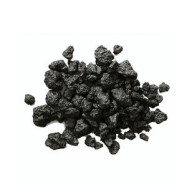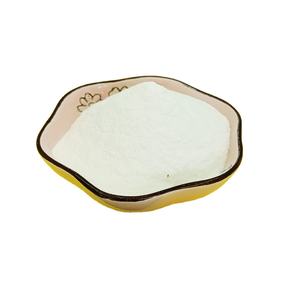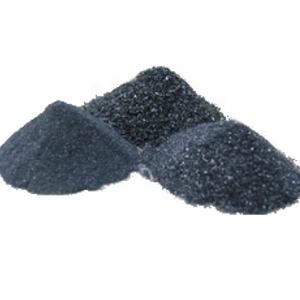Professional and high-quality metal alloys, ceramic products and concrete additives | RBOSCHCO
PRODUCT PARAMETERS
Description
| Alkyl C16-18 hydroxypropyl sulfobetaine Properties | |
| Other Names | Cetyl octadecyl hydroxypropyl sultaine |
| CAS No. | 137-16-6 |
| Compound Formula | RN(CH3)2CH2CH(OH)CH2SO3 R=C16-18alkyl |
| Molecular Weight | N/A |
| Appearance | Red flowable liquid |
| Melting Point | N/A |
| Boiling Point | N/A |
| Density | N/A |
| Solubility in H2O | N/A |
| Exact Mass | N/A |
| Alkyl C16-18 hydroxypropyl sulfobetaine Health& Safety Information | |
| Signal Word | N/A |
| Hazard Statements | N/A |
| Hazard Codes | N/A |
| Risk Codes | N/A |
| Safety Statements | N/A |
| Transport Information | N/A |
(Alkyl C16-18 hydroxypropyl sulfobetaine)
Overview of Alkyl C16-18 Hydroxypropyl Sulfobetaine
Alkyl C16-18 hydroxypropyl sulfate is a surfactant composed of medium chain alkanes (C16-18) combined with hydroxypropyl sulfate betaine. This compound combines the characteristics of non-ionic and zwitterionic surfactants, exhibiting excellent skin compatibility and gentleness. It is often used in cosmetics and personal care products, such as shampoo, bath gel and skin care products, to enhance the stability and foam performance of products. Meanwhile, its gentle nature makes it particularly suitable for sensitive skin and baby products. In addition, this ingredient also has good ecological safety, is easy to biodegrade, and has a relatively small impact on the environment.
Characteristic of Alkyl C16-18 Hydroxypropyl Sulfobetaine
Mildness:
Due to its zwitterionic structure, this surfactant can remain stable under various pH conditions and is mild and non irritating to the skin and eyes.
Extend for sensitive skin and baby skincare products.
Excellent surface activity:
Capable of forming a stable film at the water oil interface, exhibiting good wetting, foaming, and dispersion abilities.
When used in shampoo, shower gel and other cleaning products, it can produce rich and delicate foam, and effectively clean skin and hair.
Antistatic performance:
It can effectively reduce the generation of static electricity, making hair and clothing smoother, easier to comb and wear.
Compatibility and stability:
Compatible with various ionic and non-ionic surfactants, it can work synergistically with other components to improve the overall performance of the product.
Maintain stability over a wide temp range and be less prone to decomposition or precipitation.
Environmental friendliness:
Good biodegradability, minimal environmental impact, and in line with the approach of green chemistry and sustainable development.
Multifunctionality:
In addition to being used as a surfactant, it can also be used as an emulsifier, dispersant, solubilizer, and wetting agent, and is widely used in various fields such as maquillage, personal care products, and cleaning agents.
Security:
After multiple safety tests, it has been proven that it is non irritating and non allergenic to the skin, and can be used safely.
Adjusting performance:
As a zwitterionic surfactant, it can adjust the surface tension of the system in acidic or alkaline environments to make the product more stable.
Technical Parameter of Alkyl C16-18 Hydroxypropyl Sulfobetaine
|
Product Name |
Short Name |
Active matter content |
Molecular formula |
PH |
Free fatty acid (%) |
|
Alkyl C16-18 hydroxypropyl sulfobetaine |
LS-97 |
95±1 |
RCON(CH3) CH2COONa R=Coconut oil base |
7.0-8.5 |
N/A |
Application of Alkyl C16-18 Hydroxypropyl Sulfobetaine
Gentle cleaning:
Due to its bisexual properties, coconut oil-based hydroxypropyl sulfated betaine can exhibit good cleaning performance over a wide pH range.
Its gentleness makes it particularly suitable for sensitive skin and baby skincare products, as it does not damage the skin's natural barrier.

Alkyl C16-18 hydroxypropyl sulfobetaine is used for sensitive skin and baby skincare products
Bubble formation and stabilization:
In products such as shampoo and shower gel, betaine of coconut based hydroxypropyl sulfonate can produce rich and lasting foam to improve the comfort of use.
Its foam stability helps to maintain the stability of foam during washing, so as to remove dirt more effectively.

Alkyl C16-18 hydropropyl sulfobetaine for foaming and stabilizing
Hair care:
In hair care products, coconut oil-based hydroxypropyl sulfated betaine can provide good wetting and anti-static effects, helping hair maintain softness and shine.
It can also help hair absorb and retain moisture, reduce dryness and damage.

Alkyl C16-18 hydroxypropyl sulfobetaine for hair care
Skin care:
In lotion, face cream and face cleaning products, betaine can be used as a mild emulsifier and surfactant to help stabilize the texture of products.
Its moisturizing properties help the skin retain moisture, relieve dryness and tightness.

Alkyl C16-18 hydroxypropyl sulfobetaine for skin care
Industrial applications:
In certain industrial fields, coconut oil-based hydroxypropyl sulfated betaine is also used as a wetting agent, dispersant, or stabilizer, such as in industries such as coatings, inks, textiles, and leather processing.

Company Profile
NANOTRUN(www.rboschco.com) is a trusted global chemical material supplier & manufacturer with over 12-year-experience in providing super high-quality chemicals and nanomaterials, including boride powder, nitride powder, graphite powder, sulfide powder, 3D printing powder, etc.The company has a professional technical department and Quality Supervision Department, a well-equipped laboratory, and equipped with advanced testing equipment and after-sales customer service center.If you are looking for high-quality Alkyl C16-18 Hydroxypropyl Sulfobetaine, please feel free to contact us or click on the needed products to send an inquiry.
Payment Term
L/C, T/T, Western Union, Paypal, Credit Card etc.

Shipment Term
By sea, by air, by express, as customers request.
Storage Conditions:
Temperature control:
It should be stored in a dry, cool, and well ventilated place, avoiding direct sunlight.
The recommended storage temp range is usually between 5 ° C and 30 ° C to ensure product stability and extend shelf life.
Humidity control:
Keep the relative humidity of the storage environment low to prevent product moisture absorption and deterioration.
Avoid storing in high humidity environments as this may cause the product to clump or decompose.
To avoid pollution:
Ensure that the container is well sealed to combat the entry of air, moisture, and other pollutants.
Avoid mixing and storing with different types of chemicals to prevent cross contamination.
Storage period:
Follow the storage guidelines and expiration dates on the product label.
Products that exceed the recommended storage period should undergo quality inspection before use to ensure that they are still suitable for use.
Safe operation:
When handling this product, all applicable safety regulations and preventive measures should be followed.
Avoid direct contact with skin or eyes. If in contact, rinse immediately with water.
Suitable container:
Use suitable containers for storage, such as sealed plastic or metal drums.
Ensure that the container can withstand the weight and volume of the product without causing contamination.
Inventory monitoring:
Regularly check inventory to ensure products are stored under recommended conditions.
For products that are about to expire, they should be planned for use or disposal in advance.
FAQ
Q1
What is the surface activity performance of Alkyl C16-18 hydroxide sulfate and what are its advantages compared to other surfactants?
Re:Alkyl C16-18 hydroxypropyl sulfobetaine exhibits excellent surface activity, and its zwitterionic properties in its molecular structure give it good stability and foaming properties in the low to medium pH range. Compared with other traditional surfactants, its advantages lie in its gentleness and low irritation to the skin. This ingredient can effectively reduce the surface tension, produce rich and stable foam, and has good washing and cleaning ability. In addition, due to its good skin compatibility, it is particularly popular in personal care products.
Q2
What is the stability and chemical stability of Alkyl C16-18 hydroxide sulfate, and is it susceptible to external conditions?
Re:Alkyl C16-18 hydroxypropyl sulfate exhibits good stability and chemical stability. It can maintain stability in its performance over a wide range of pH and temp, and is not easily affected by external conditions such as light, oxidation, or hydrolysis. This gives it a longer shelf life and stability in use in cosmetics and personal care products.
Q3
How compatible is this ingredient with other commonly used skincare ingredients such as silicone oil, plant extracts, etc?
Re:Alkyl C16-18 hydroxypropyl sulfate typically has good compatibility with other commonly used skincare ingredients. When mixed with silicone oil, it can form a stable lotion or suspension system to improve the stability and texture of the product. At the same time, when combined with natural ingredients such as plant extracts, it can also maintain its activity and stability, promote the absorption and efficacy of the product on the skin.
Q4
How to adjust the concentration of Alkyl C16-18 hydroxide sulfate in the product formula to optimize product performance?
Re:In the product formulation, adjusting the concentration of Alkyl C16-18 hydroxypropyl sulfide is the key to optimizing the product performance. Through test and observation, the best concentration range can be determined to balance the cleaning power, foam stability, moisture retention and other required skin sensory properties of the product. In addition, it is necessary to consider the influence of other components, such as the interaction between surfactants, thickeners, preservatives, etc., to ensure the stability and effectiveness of the entire formula.
Q5
How does this component affect the environment?
Re:Alkyl C16-18 hydroxypropyl sulfate, as a surfactant, its impact on the environment mainly hinge on the emissions during its production process and the disposal method after use. In theory, this component can be biodegradable, so compared to some non degradable surfactants, its long-term impact on the environment is relatively small. However, if the waste generated during the production process is directly discharged without proper treatment, it may have a certain impact on the environment, such as water pollution and soil pollution.







